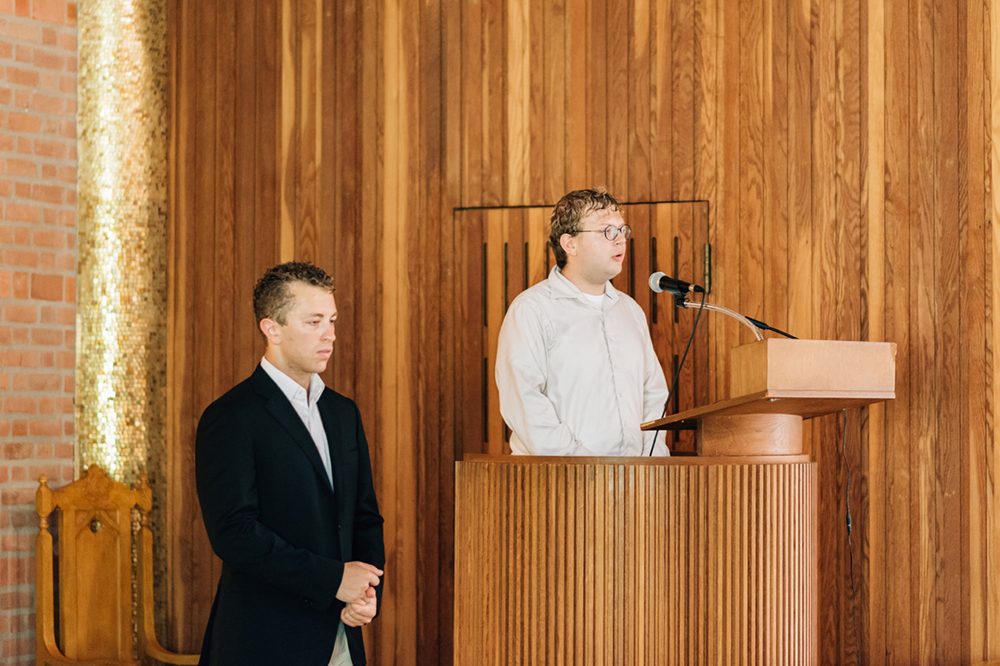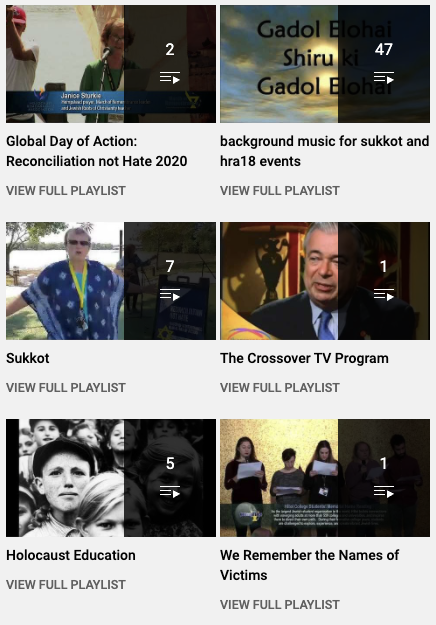|
Thu, Dec 19, 2024
|
The defeated referendums called on Rice University to “divest from all educational partnerships, companies and institutions that profit off of or fund war and genocide”; “to issue a statement condemning the expanding genocide and scholasticide perpetrated by the U.S.-Israeli colonial war machine”; and “institutionalize a commitment to supporting anti-colonial scholarship, particularly for Palestinian scholars and students.”
The referendum that passed asks Rice University to “disclose all its holdings and investments to allow for transparency regarding the material foundations of the university.”
These results are an unqualified and complete victory for Rice’s Jewish and pro-Israel students and for Israel.
A Rice Student Association referendum requires two elements to pass. First, at least 20% of the student body must vote. Second, two-thirds of those students who vote must vote in favor of the referendum for it to pass. Almost 40% of the student body voted, but only Referendum 1 received enough votes to pass.
The requirement of a two-thirds supermajority is typical for significant decisions that will benefit from a broad consensus. In the case of the Student Association referendums, the supermajority requirement protects Jewish, Israeli and pro-Israel students – a minority at Rice – because it prevents a simple majority of the student population from imposing long-lasting and substantial impacts on a minority of students.
In fact, because fewer than 1,900 of Rice’s roughly 4,800 undergraduates cast ballots, and about 60% of those students voted in favor of any of the three defeated referendums, the reality is that less than 25% of Rice’s students cast ballots to approve the referendums. In plain language, the vast majority of Rice students oppose BDS, the boycott, divestment and sanctions movement that targets Israel.
The passage of the referendum on investment transparency suggests that students made an effort to distinguish between measures that could harm the campus climate for Jewish students and one that did not specifically target Israel.
Rice University issued a statement as soon as the election results were made public:
“Student self-governance is a valued tradition at Rice University, and it is deeply supported by the university administration. The recent student referenda on issues related to the Israel-Hamas war were conducted in accordance with university policy. We commend the student government for its leadership in providing for free speech and fostering respectful campus debate.
“To ensure the integrity and effectiveness of our investment strategies, operations and partnerships, we do not publicly disclose certain information about the endowment. Many of the endowment’s investment partnerships are governed by non-disclosure agreements which legally prohibit Rice Management Co.’s disclosure of holdings within these partnerships. Importantly, Rice complies with all investment-related disclosure requirements under applicable federal and state law.”
It took more than common sense among the student body to defeat the referendums. While advocating for Israel and combating antisemitism may seem self-evident to those of us engaged in the Jewish community, the reality is that understanding the Israel-Palestinian conflict and what constitutes antisemitism is quite difficult. Helping students and university administrators understand and respond to attacks on Israel and instances of antisemitism is among the most challenging work my staff and I do on campus.
Rice’s Jewish and pro-Israel students worked very hard during the weeks leading up to the election – a period that included the last week of classes and the beginning of final exams. Katia Sokolov, Houston Hillel’s Israel fellow, helped students formulate their thoughts and assess strategies. Also providing tremendous in-person assistance and expertise were Gabbi Hernandez and Zoe Mail of the Israel on Campus Coalition, and Daniel Ardresen of the Maccabee Task Force.
However, because of particularly stringent and arcane Student Association regulations, our students did the bulk of the work.
“It was amazing to see our students at work, while dealing with midterms and finals,” observed Sokolov. “They put in the time and effort to make sure their voices were heard. They were at every Senate meeting, created a plan for dealing with the referendums, tabled on campus, reached out to their friends and did so much more.”
She continued, “Among the students who were particularly active, I would like to thank Warren Weissbluth, Giovanni Marinilli, Asher Yellen, Simon Yellen, Jacob Kasner, Gal Kadmon Michael Busch and Daniela Nahmias. At a time when supporting Israel in any way is not particularly popular, these students publicly spoke against the referendums. Seeing this group of students tabling in a public space on campus filled me with pride and reminded me to keep hope alive.”
Mail echoed Sokolov’s thoughts. “The referendum results are a testament to the tireless work of Rice’s Jewish community, and Gabbi and I were honored to contribute,” said Mail. “During countless strategy meetings to combat this divestment attempt, the leadership of students like Warren Weissbluth and Michael Busch played a crucial role in uniting everyone for text banking, social media outreach and tabling efforts.”
We hope the referendum election results will encourage the Rice Student Association to move away from supporting initiatives driven by a small group of students. Their efforts not only sought to promote divisiveness, but also consumed significant time that could have been devoted to more productive actions.

